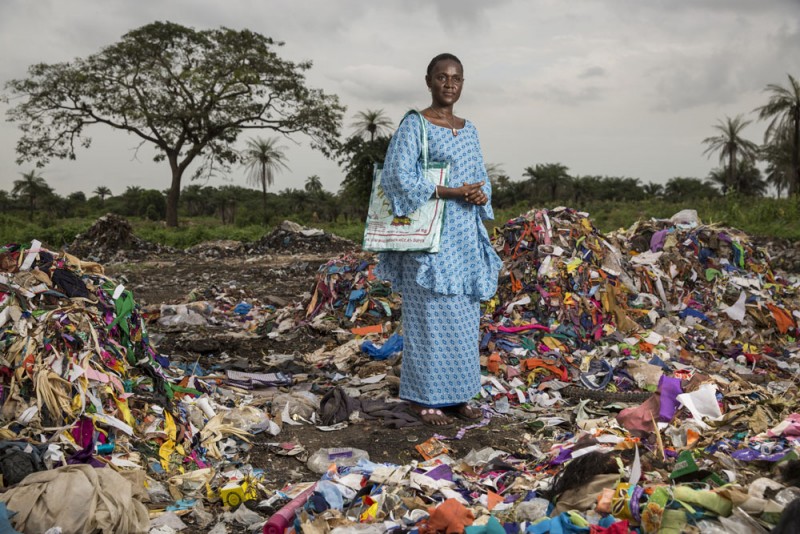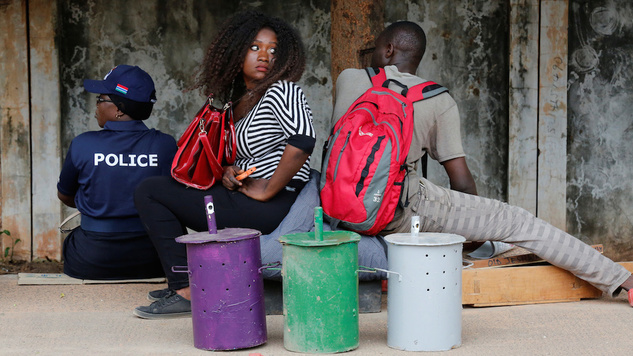
Women in The Gambia have expressed fear amid hate speech, insults & bullying particularly on social media as the 4 December 2021 Presidential Election looms, with 18 political parties expected to contest.
With five months before the election, women leaders have warned that if preventive measures are not put in place, there might be chaos in the country or a replica of the 2016-2017 political impasse.
Women leaders argue that during conflict, women and children suffer so much and thus called on political leaders to engage their supporters and followers on the need to maintain peace before, during and after the 2021 presidential election, noting women can also play a major role in the peace negotiation process.
Meanwhile, the Dakar UNHCR reported in 2016 that more than 45, 000 Gambians fled to Senegal as a result of political impasse in 2016.
Adama Cooper-Jah, administration officer at the African Centre for Democracy and Human Rights Studies (ACDHRS), said: “During unrest or war or anything that’s contrary to development, women and children mostly bear the burden of it. So, women have a key role to play especially in peacebuilding processes.”
Commenting on the forthcoming election, she said, peace and stability is crucial, saying that elections should not be an avenue for war or civil unrest.
Gambian women, she added, are doing their best in both communities, national and even sub-regional levels in ensuring that the forthcoming election is free from violence and that the election is held in a peaceful atmosphere.
“Elections come and go, but the environments in which the elections are held are significant. Political leaders must be held to account. At the end of the day, we don’t want to see a replica of the 2016 and 2017 outcomes.”
According to her, it is the responsibility of everyone more so the political leaders in ensuring that Gambians go to the polls peacefully. “The negative news and hate speech we see on social media is another area in which politicians, especially the party leaders, have a role to play.”
Leaders of political parties, she stated, need to talk to their supporters and sensitise them on the importance of peace.
“Yes you can express yourself, but it doesn’t have to be in a hate speech. Democracy talks about rights. However, those rights also go with responsibilities. So, if we are talking about rights, we should also talk about responsibilities. People can campaign, but we have to do it maturely, but talking about violence is not the way for us to go at this time,” she posited.
Joanna Mendy, programme officer at FAWEGAM, also reiterated that women and children suffer much when conflict occurs, thus she said, it’s crucial that the coming election is conducted in a free atmosphere that’s free from violence.
“Looking at what’s happening on social media and looking at what’s happening right now in the country, with regard to hate speech and others, there is a need to engage political parties in order for us to have a peaceful election. The peace and stability that the country is known for should be jealously safeguarded by everyone.”
She further pointed out: “There is a need to engage the National People’s Party (NPP) and the United Democratic Party (UDP). These are the two rival parties. In fact, mostly, the hate speeches are within these parties. There is a need to engage the leaders of these two parties so that they can speak to their supporters in order for them to stop the hate speech and insults. There are better things to discuss and talk about in the country rather than insults.”
“What we should be discussing now is policies, programmes and manifestos but not insulting each other. There is fear in the country that there will be chaos in the country if the situation is not addressed. The way things are going on social media is a bad signal. In my opinion, I believe we have more threats in this election than even the 2016 presidential election.”
In the previous election, she claimed, there was not much threat as now. “Therefore, if we start having these threats, when the election is yet to come, only God knows what will happen during the election and after the election.”
Ramatoulie D.K. Sanneh, a Brig. Gen. in The Gambia Armed Forces, said: “Security apparatus in the country are working tirelessly in ensuring that peace and stability is maintained before, during and after the election. As Gambians, it’s the responsibility of each and every one of us to also complement the efforts of the security in maintaining peace and stability. Gambia belongs to all of us. Elections come and go but we remain here as people.”
Fatoumatta Jahumpha-Ceesay, former speaker of the National Assembly said: “As women, we need to come out and engage all political parties before the December 4th election. We have to ensure that the forthcoming election is free from violence. In fact, in the just-completed voter registration exercise, women formed the majority, thus it’s important that we participate in peace advocacy. What we should be discussing is policies and programmes, not insults or hate speech.”
“We want to organise a national peace conference where all political leaders will be invited. During the convergence, leaders of various political parties will sign peace agreement in ensuring that this election is free from violence. Any party that does not commit to this agreement, then we will inform all Gambians that this particular part is not ready for peace.”
“We need to change the way we campaign in this country. What we should be discussing is the development that we could bring to Gambians people ranging from education, agriculture, quality health care and among others. But what we are seeing on social media has to stop.”

